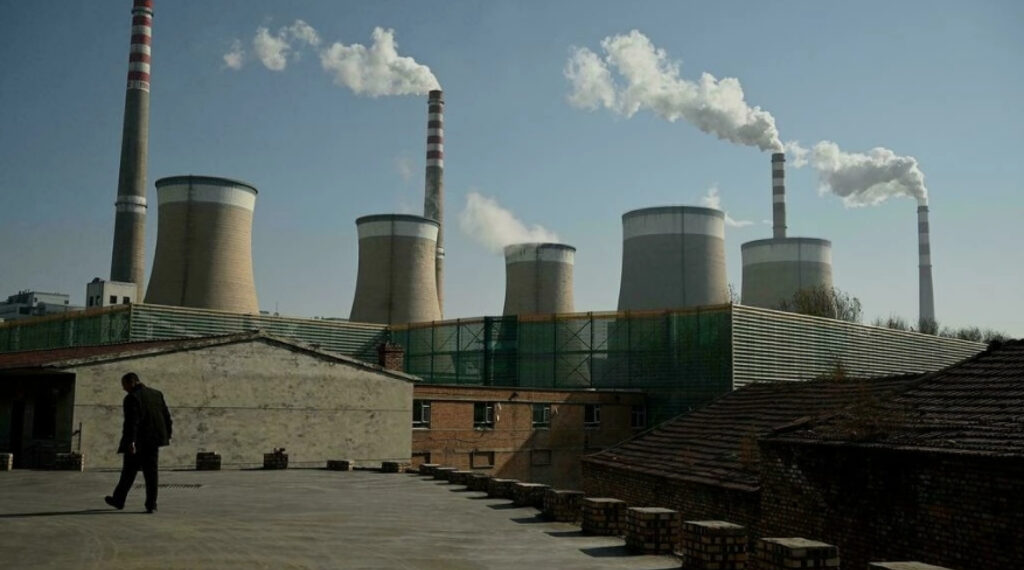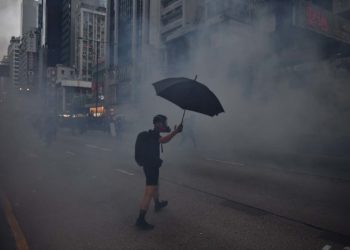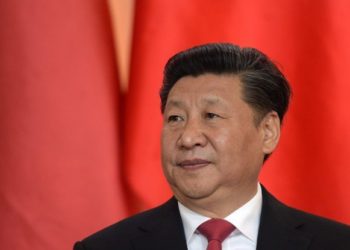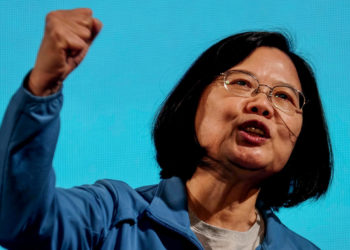After trading barbs throughout the COP26 UN summit in Glasgow, the United States and China announced a surprise pact to cooperate on climate change, signaling a desire to set it aside from other thorny disputes.
What do the broad commitments mean for China, responsible for more than a quarter of the world’s greenhouse gas emissions?
What are China’s climate goals?
China has pledged to peak coal consumption before 2030 and go carbon neutral by 2060.
It has also said it will slash emissions intensity — or emissions per unit of economic output — by more than 65 percent.
But Beijing has yet to spell out precisely how it intends to achieve these goals, and environmentalists have warned that without specifying the size of the peak or setting an absolute cap, China can essentially keep increasing emissions until 2030.
President Xi Jinping has said China will stop funding coal projects abroad, but at home, it continues to build new coal power plants — the single largest source of carbon pollution.
The United States has said it plans to be carbon neutral by 2050.
What did US-China agree to?
Washington and Beijing have committed to setting up a working group to tackle climate change in the short term and promised to meet regularly to address the crisis.
The world’s two biggest polluters said they “recognize the seriousness and urgency of the climate crisis”, especially during this “critical decade”, according to a document outlining the broad-brush agreement.
The first meeting will be in the first half of next year.
“This again shows that China and the US can cooperate on matters of global significance,” Chinese foreign ministry spokesman Wang Wenbin said Thursday.
Although the plan was light on concrete targets, it was heavy on political symbolism.
Greenpeace China’s global policy advisor Li Shuo told AFP the statement clearly signaled “a political desire to set the issue of climate change a bit aside” from other sources of tension.
“It prevents the worst — a US-China decoupling on climate action.”
What about methane?
Around 100 nations this month joined an initiative to cut methane emissions by at least 30 percent this decade, but China was noticeably absent.
The US-China pact includes a focus on lowering methane emissions, with both sides looking into improving measurement and mitigation in the fossil fuel, waste and agriculture sectors.
However, environmentalists have warned that Beijing is still lagging in the understanding of its sources and scale of methane emissions, with much of its climate efforts concerned instead with carbon emissions.
Methane is considered the second key greenhouse gas after carbon dioxide. While it can be naturally released, and absorbed, by the earth, its emissions have skyrocketed with industrialization and the expansion of agriculture.
China’s main methane sources are not just fossil fuel mining and burning, but also natural emissions from livestock as well as vast rice farms. These emissions are tougher to measure and control compared with the use of fossil fuels.
Why won’t China commit to an earlier peak?
Washington has been keen for Beijing to sign up to a more ambitious earlier emissions peak than 2030.
China, however, does not want to be seen as bowing to political pressure and is skeptical that the United States and other countries can meet their own climate pledges.
It also faces a struggle to wean itself off coal, which provides nearly 60 percent of its power.
Lauri Myllyvirta, lead analyst at the Centre for Research on Energy and Clean Air, said China not setting more specific targets may be linked to its economic slowdown.
“Uncertainty over the economic outlook has made the leadership hesitant to commit to a specific emissions pathway or ceiling for this decade,” he told AFP.
A key provision in the US-China pact, however, leaves room for them to update their long-term strategies and keep channels of communication open.
Shiran Victoria Shen, environmental policy expert at Stanford University’s Hoover Institution, added that China tends to “under-promise but over-deliver on international commitments”.
This provides “some reassurance that a seemingly unambitious international pledge can still be accompanied by the necessary change.”






















